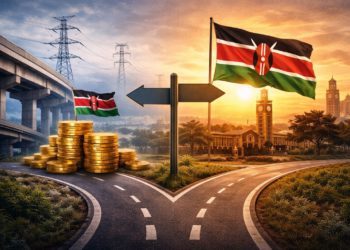The saturation of global markets across traditional markets are forcing potential investors to look for alternative investment avenues. One that has been on an upward trend is Africa. Africa has become a lucrative region for opportunities due to its young and rapidly growing population, a rise in the middle class, digital and financial innovation and abundant natural resources. The real question is not whether Africa will matter, but when will it take its place as a pivotal leader in the global investment landscape.
With a population of over 1.4 billion, Africa is projected to account for a quarter of the global population by 2050. Its young and vibrant population provides a demographic advantage that could power sustained growth for a long period of time. Second, the increase in urbanization levels and consumer spending has led to the emergence of new markets such as fintech, agribusiness and renewable energy. Countries such as Kenya, South Africa, Nigeria and Egypt are attracting foreign capital investment due to the new trajectory they are taking toward the new markets. Moreover, the African Continental Free Trade Area (AfCFTA), which is a landmark agreement aimed at creating a single market in Africa for goods and services, encompassing fifty-five African Union member states, promises to unlock intra-African trade, standardize regulation and create a single market of over USD 3.0 trillion in GDP, positioning the continent as a potential player in global business activities.
However, Africa presents its own set of challenges such as high level of political instability, inconsistent policy frameworks, underdeveloped infrastructure and poor governance. Second, the global misconception that Africa is riddled with poverty and high levels of corruption makes it less desirable to potential investors since it overshadows Africa’s achievements in innovation and reform. Therefore, potential investors are encouraged to conduct proper research since some potential risks are rooted in misinformation. Experienced investors who take their time to understand local contexts often find returns that surpass those in developed markets.
Key sectors underscore Africa’s potential. Fintech, exemplified by M-Pesa has changed the banking sector in Kenya by fostering financial inclusion to the marginalized persons. Also, Africa is central to food security as it boasts of over 60.0% of the world’s uncultivated arable land. Third, Africa’s energy gap is being addressed with solar, wind and mini-grid innovations, presenting huge potential for clean energy investors.
Africa portrays itself as a dynamic market with the potential to redefine global investment paradigms. ESG-oriented investors can align their investment goals with developmental impact, enhancing both profit and purpose. As much as the returns may not be instant in the short-run, investors may benefit in the long-run. In a world seeking new opportunities, Africa is the new destination.












